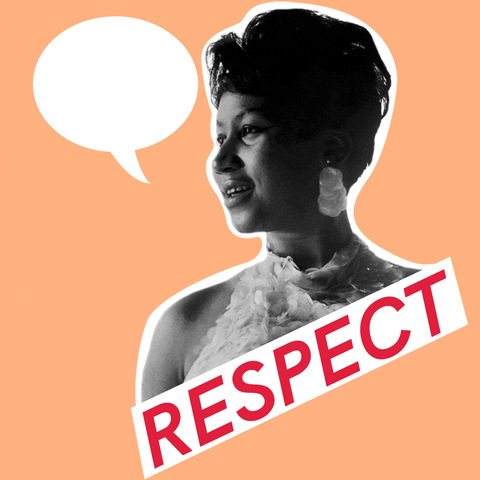A quick glance at the 2020 U.S. election results map will show you that whichever side you were on in the election, there are plenty of people who feel the opposite to you.

Map via The Associated Press.
However you feel about president-elect Biden’s win, it’s important to remember that not everyone will share your joy or disappointment. And while as many as 45% of us say that we’ve stopped speaking to politics with someone because of something they’ve said, that leaves plenty of people willing to talk to others with conflicting views.
There’s no doubt that there will be leftover tension as voters process their positive and negative feelings around the election. Psychologists and counselors say that we need to engage with the heavy topics because they, and the conflict they bring, won’t go away by ignoring them.

Rather than attempt to stop the conversation, we need to shape the spaces these conversations happen in.
If we set the right boundaries and guidelines, we can feel psychologically safe enough to have a difficult discussion and know that we will come out of it unscathed.
🚨 Alternative point of view: “What about free speech?”
Everyone is entitled to free speech. Though the term “free speech” is a bit of a misnomer, because there are limitations to that “freedom”.
Any power, including free speech, can be abused. Everyone needs to be held accountable for the things they say and the impact their words have, regardless of intention.

There are four things we can do when talking about politics that will make observers perceive us as more diplomatic, more persuasive and more likely to maintain relationships with others.
An HBR article by social scientists and communication specialists outline the four key skills:
💡 Frame it as a learning opportunity. Bringing something up so you can convince people that you’re right is a no-no. We don’t come into work to be lectured about, much less about things unrelated to our job.
Show that you’re open to hearing the other person’s point of view and that you’re not armed an agenda. Try asking, “I wonder if you could tell me more about your stance on this to help me understand?”.
💡 Ask for permission. If your colleague does share their view, remember that doesn’t automatically entitle you to waxing lyrical at them now. Ask if you can share yours, otherwise asking for their opinion might look self-serving after all. That could sound like, “I feel differently. Would you mind if I shared my point of view?”.
💡Be respectful. We have less motive to play nice if the other person doesn’t show respect. Start with, “I respect your opinion and I don’t presume that either of us is right or wrong.”.
💡 Find your common ground. In her book, Braving the Wilderness, researcher and storyteller Brené Brown writes, “People are hard to hate close up. Move in.”.
When you sit on opposing sides of an argument, it gets worryingly easy to misunderstand other people. Refocus your lens to find areas you agree on and go from there. Try saying, “Let’s look at this in terms of the goals and values we both share.”.
Without these four steps, observers judged the person speaking as “abrasive” and “ignorant”. Even when they agreed with the point being made.

Create a set of ground rules that everyone can use as a reference point when engaging in political debate at work. Here are a few suggestions to get you started.
❌ No generalizations or name-calling. Inflammatory terms like “snowflake” don’t help. Anything that can be said in contempt is off-limits because it’s a segue to regarding that person with disgust.
Author Jonathan Haidt points out that we can get over our anger, “But disgust is different. Disgust paints the person as subhuman, monstrous, deformed, morally deformed.”.
🤷♀️ Give up winning the argument. In the bestseller How to Win Friends and Influence People, Dale Carnegie says that so many of us damage our relationships by believing that arguments are something you can win. What happens when we usually “win” a heated argument is that the person who “loses” is left feeling resentful about being proven wrong. Not exactly the kind of feeling you want to promote between colleagues.
🙅♂️ Respect boundaries. Agree to use and respect phrases that signal when a conversation is unwelcome. Say “I’d rather not talk about this” or “I’m not in the right headspace for this conversation. Could we pick it up another time?”.

Aretha Franklin Queen GIF by @warnermusicgermany.
😢 Accept emotion. If you sense that the other person is getting emotional about the subject, accept their emotion. Don’t gaslight by telling them that they’re overreacting or to calm down.
Stop the discussion to check on your colleague, “If this conversation is getting a bit much, we can agree to disagree for now. I respect you and your opinions and don’t want politics to get in the way of our work friendship.”
🤔 Check your bias. A colleague you like and trust sides with a policy or politician you despise. Does it change how you feel about them? Possibly. Does it change how you interact with them at work? Possibly.
Remind yourself that someone’s political leaning is just one aspect of them. Imagine the reverse situation where a colleague found out your political views and started treating you differently. Would it bother you to suddenly be judged exclusively on your politics? Is it fair to act differently with a colleague because of something that doesn’t affect your or their work?
🗝️ Your key takeaway
Politics doesn’t have to be uncivil. We can learn to be more diplomatic and reasonable with each other by framing discussions around learning, asking for permission to share our thoughts, upholding respect and focusing on our common ground.
More Articles
Book a demo today
Discover the power of Hive Learning:
Simplify, Streamline, and Succeed